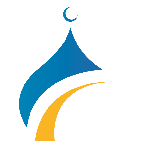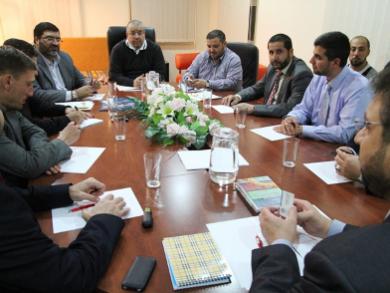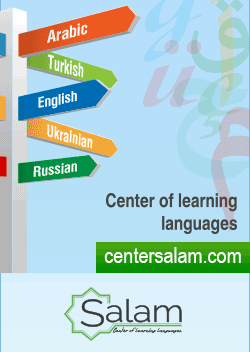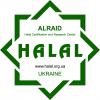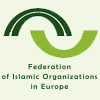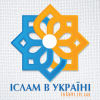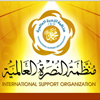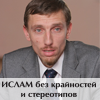Adel Fl-Salah: “Why should we open “Al-Wasatyya” division in Ukraine when “Alraid” is so highly performing here?”
Mr. Adel Fl-Salah, Deputy-Minister on Islam and Wakf Affairs from Kuwait, director of the International Center “Al-Wasatyya”, had a business visit to Kiev office of the All-Ukrainian Association of Public Organizations “Alraid”. There he met “Alraid” administration, unit heads and scientists of the Ukrainian Center for Islamic Studies, learnt about their current achievements and future plans and agreed to answer the questions of our correspondent.
It was in 1998 that you learnt about “Alraid” for the first time. What do you think has been changed in the “Alraid” role and significance since your last visit?
— No doubt that “Alraid” has undergone radical change since then, as from a tiny organization engaged in public activities of minor significance it could develop into a real association of the Ukrainian-wide scale, which work is clearly systematized and administered by clearly outlined strategic plans.
The Association has been actively communicating with all the strata of the contemporary Ukrainian society and maintaining warm relations with various organizations and confessions. “Alraid” has clear objectives and seeks for their achievement; it considers local realities and uses a flexible approach to each and every activity area, in order to have the best result. In doing this, you have full awareness of the high values which are important for you; you advocate them consistently, which brings only benefits for the Ukrainian society.
Yet, when talking to many administrators and officers in various public institutions of Ukraine, I can conclude that instead of confining the effort to providing for interests of its members or Muslim communities of Ukraine, the Association works actively for the good of the whole Ukrainian society, which, indeed, has a positive response.
“Alraid”, its members, participants and volunteers have actively engaged in propagating the principle of moderateness, which means “golden mean” in Islam (al-wasatyya) and reveals the true essence of the Islamic religion. They all are guided by it in their effort. This principle gives a positive impulse pushing up the development of civilization, growth and progress in various walks of life.
We in Kuwait refer to “Alraid” as an example for others who may often have better conditions or wider opportunities.
There are many organizations that claim to be representatives of moderate Islam now. Are there any criteria to evaluate their activities?
— The principle of wasatyya embodies the true meaning of Islam, it constitutes the core or the basis of this religion. This way used to be kept to by Muslims over the history, and, of course, various kinds of movements and tendencies can be found, which deviate from this way.
It is not enough to be referred to as a representative of “al-wasatyya”, as one has to meet its values in his or her actions, aspirations and behavior. This requires from him/her high moral qualities, tolerance to other’s opinions (although it may differ from one’s own opinion); this means respect to one’s opponents and peaceful coexistence on the basis of principles of tolerance, mutual likeness and acceptance of others. These things can only originate from the ones who are sincerely guided by wasatyya criteria in everything. The Holy Quran sais:
Thus, have We made of you an Ummat justly balanced, that ye might be witnesses over the nations, and the Messenger a witness over yourselves; (Quran, 2:143)
Another exciting aspect is that the term of “wasatyya”, unlike other terms existing in the Islamic terminological learning, is referred to directly in the Koran. Thus, notion like “ahlu-ssunna-wal-jamaa”, “ahlu-l-hadis”, “salafism”, “sufism” cannot be found in the Koran, but the term “wasatyya” or “wasat” (mean) is referred to in the holy text in the most explicit way, and, besides, this notion has multiple numbers of synonyms that are also mentioned in the Book of Allah. These notions include justice, moderateness, fairness, tolerance etc.
The principle of wasatyya is neither a kind of a bright idea occurring due to one’s illumination, nor an ideology dictated from outside, nor an innovation. Wasatyya is the true essence of the Islamic religion.
Muslims used to be guided by “wasatyya” principle throughout the history of Islam. It was this principle upon which they could build the Islamic state with its unparalleled culture and civilization. It was due to showing justice and tolerance to the surrounding people and search for peaceful coexistence that non-Muslims began to cooperate with Muslims in virtually everything. Non-Muslims could be met among ministers, counselors at califs, big traders or even philologists of Arab language and scholars. Muslims never threw these people to the social backyard and never killed them.
In the soviet era Muslims were devoid of a chance for freely practicing their religion, producing and communicating religious learning, religious education of their children. Educated or even practicing Muslims used to be destroyed by the state power. This led to information and ideological vacuum that was a reason behind ignorance of Muslims in their religious matters and their blind following examples or opinions of a respected one in each nation. Now such “traditional Muslims” are considering wasatyya ideas as an attempt to reform Islam. What is your judgment of this situation?
— I have already said that the wasatyya principle constitutes the essence of the Islamic religion, its basis and core. It is neither “a re-invented Islam” nor an ideology imposed from outside nor a program of political parties. It is the way of the Prophet (may be peace and blessings on him). The ones who keep up on this way constitute the core or the central group of Muslims. However, there exist other Muslims dissociated from this group, which have limited perception of Islam but do not move beyond its boundaries. There are things in which they do not show obedience to the Most High and commit sinful actions. Such Muslims can be judged only inasmuch as they are dissociated from the core group, the one that sticks to the moderateness principle.
Unfortunately, the forces can be found now which propagate the supposed right for everyone to announce takfir to any Muslim not intending to join diversion groups of national separatists, to immediately announce jihad to sovereign states or to announce about their alleged authorities for reviving the caliphate on the territory of existing states.
These propagandistic materials treat basic provisions of Shariah in extremely loose or explicitly false way. Yet, a great part of Muslim youth has poor knowledge of Islam, but they have already been subject to various kinds of social injustice, and they want to be accepted by the public and freely follow their moral orientations. These young men and women, given their maximalist attitudes intrinsic in the youth and eagerness for justice along with lack of Islamic knowledge, can be easily caught by simple and striking declarations of separatist politicians.
After 70 years long religious persecutions in the USSR, and over several years of religious freedom, Islamic theological school has not been yet re-established, and a significant part of the growing Muslim youth cannot always find refutations of false perceptions articulated from the outside, which are put on a modern and commonly understandable language and are convincing in view of Shariah.
There some who, instead, are satisfied only by examples or judgments of older generations of their families, not caring about whether or not this behavior or judgments are justified by Shariah. Accordingly, everything that mismatches the ideas and practices they are used to tends to be denied as “alien and non-Islamic”, although “traditional Islam” of the older generation occurs in practice as rather a symbiosis of religious traditions and perceptions found in only one particular nation.
This problem can only be dealt with by providing a real opportunity for Islamic education for as broader as possible population strata, and by strict observance of their rights and freedoms by representatives of state power and security offices.
Your effort was highly appreciated in the neighboring Russian Federation, as in November 2010 you were awarded by Mr.Dmitry Medvedev, President of Russia, with the Order of Friendship “for personal contribution in strengthening relations between Russia and Kuwait, dissemination of ideas of religious tolerance”, whereas in August 2011 you received the supreme award of the Chechen Republic, the Order of Kadyrov. What do you think could promote this?
In fact, this award was not given me for my personal gains. I accepted it on behalf of the Kuwait nation for charitable activities, disseminating the wasatyya principle and religious tolerance. It seems to me that the recognition did not came to us due to hard work or exerting extra effort, but due to transparency and balanced nature of our activities, which are activities of non-contradictory nature. These are qualities required in the post-soviet society.
The Most High says about His Prophet in the Quran: “We did not send you except as mercy to mankind” (21:107). If we are called the followers of the Prophet (may be peace and blessings on him), we must do the best to align our lives and efforts with this motto. Mercy and compassion of the Most High spread over each human; each one, till he/she is alive, can embark on the way of repentance and correction.
Being guided by this principle in our work, we, thanks God, have set up successful relations with various states, foundations, associations and organizations.
Once the Soviet Union collapsed, Muslims found themselves in ideological vacuum. The only one question occurs in this context, if this vacuum will be filled by the true Islam, that is, the balanced and moderate Islamic views, or its place will be taken by extremist and radical moods.
Bearing this in mind I elaborated a special program on the issues related with dissemination of wasatyya ideas, which was implemented in books and publications distributed worldwide in circulations running into millions, not to mention multiplicities of lectures, seminars and forums devoted to the theme. We want Muslims to be good members of the societies that they live in, take active part in their improvement and development, embody security and stability and avoid becoming a reason for negative impression about Islam.
Due to information vacuum occurring across the post-soviet area and the already common distrust of local leaders and representatives of power, whether secular or religious, many Muslims prefer to address sheikhs from Arab countries with questions that they are concerned with.
Sheikhs, however, rely upon the realities of the society that they live in, and often their fatwas can hardly or never be implemented in the Commonwealth of Independent States. What do you think are ways to deal with this problem?
— It is a challenge, indeed, when a person having a problem addresses a sheikh residing in Saudi Arabia, Kuwait or Egypt, describes his/her situation and receives a fatwa that can apply only in Saudi Arabia, Kuwait or Egypt, but not applicable at all or even harmful for other societies. In future we want to gather most distinguished scholars of Muslim theology, to elaborate jointly the rules for issuing fatwas. We expect to show strict conditions in the rules; once the conditions are observed by a sheikh, he can believe that he has adequately learnt the situation in a given country or region, and now he is capable to issue a fatwa for this region.
As far as the issue of proper interpretation of fatwas or theological works is concerned, in Ukraine and the Commonwealth of Independent States there are many encyclopedias and para-Islamic publications, each one with its own nuances of terminology interpretations, as, for example, terms of “Shariah” or ‘jihad”. Interpretation disagreement gives rise to various radical movements. There’s a need in a fundamental theological glossary in Russian.
— It gives rise to problems, indeed. By God’s will, we shall consider for your proposal in planning future work of “Al-Wasattyya” Center. I believe it will be useful to set up cooperation on this matter with scientists from the Ukrainian Center for Islamic Studies, in order to include in it both theological commentaries and opinions of Oriental scientists. I believe that in the forthcoming future we will compile a working plan on this encyclopedia with assistance from Ukrainian scientists. As they know the situation in your region, it is very important to have a separate list from them with the terms that cause the strongest disagreement, so that we could pay more attention to these articles in the encyclopedia.
Could you please, give your judgment of the prospects in disseminating wasatyya ideas in light of your centers performance?
— To prevent extremist ideas that infect minds of some Muslims, like a virus, both in Kuwait and beyond, the Emir has taken the decision that our state should be the international center for disseminating the wasatyya principle worldwide. Implementation of this task has been put by him on us, theologicals scholar of “Al-Wasatyya” Center.
We launched conferences and seminars devoted to wasatyya, publishing of books that would subsequently be translated into many languages. In countries such as Azerbaijan, Russia, Chad, the U.K., Qatar, Saudi Arabia, Jordan etc. we opened centers for disseminating the moderateness principle. Requests about promotion in establishing such centers have been coming to us from various parts of the world, and we are doing whatever possible to meet them by offering logistic and financial aid. The importance of centers like this can hardly be overestimated. They play the tremendous role in disseminating the true perception of Islam and prevention of radical moods.
To end our conversation, would you, please, articulate some recommendations for developing and improving the “Alraid” work?
Frankly speaking, it is not easy for me to find a response on this question, as the performance gained by Association “Alraid” is so high that an advice or recommendations become unneeded, and one has only to watch its advancement to excellence.
Furthermore, to be fair, I don’t feel a need to open our office here. Why should we open “Al-Wasatyya” division in Ukraine when “Alraid” is so highly performing here?
Read more...
|
|
20.11.2012 Sheikh Adel Al-Falah appreciates “Alraid” action on Al-Wasatiyah |
|
|
20.11.2012 Appeal of “Alraid” towards bloodshed in besieged Gaza |
|
|
19.11.2012 “Al-Masar” activists visit blind people in Odessa city in the International Day of the Blind |
